“Weather can be a powerful reminder of God’s control and creativity in creation, as illustrated through various Bible verses.”
Weather patterns and natural phenomena, such as storms, rain, wind, thunder, lightning, and clouds, have long been seen as manifestations of God’s power and majesty in the Bible. From the calming of a storm to the sending of rain, weather events often carry spiritual significance and lessons about God’s sovereignty. The sun, drought, flood, and seasons are not only part of the natural order, but they also reflect God’s control over creation.
By exploring these Bible verses about weather, we can gain insights into how Scripture views natural events, such as heat, snow, and flooding, and what they reveal about God’s nature and His interactions with the world. These verses serve as reminders of God’s divine power, providence, and intervention, showing how He guides and protects us through earthquakes, winds of change, and other natural phenomena.
The weather also speaks to God’s will, bringing blessings through cleansing rain or offering comfort during storms. We are reminded of His presence in the heavens, His care for the elements of nature, and His ability to provide protection from elements. Ultimately, the natural world points to God’s majesty and His unwavering mercy in all things, including the winds of change and heavenly clouds that bring about His divine purposes.
Scriptures About Weather in the Bible
Genesis 9:13
“I have set my rainbow in the clouds, and it will be the sign of the covenant between me and the earth.”

The rainbow is a symbol of God’s promise to never again flood the entire earth, representing His faithfulness and covenant with humanity.
Psalm 147:8
“He covers the sky with clouds; he supplies the earth with rain and makes grass grow on the hills.”

This verse highlights God’s role in providing rain and sustaining life, showcasing His provision and care for creation.
Matthew 8:26
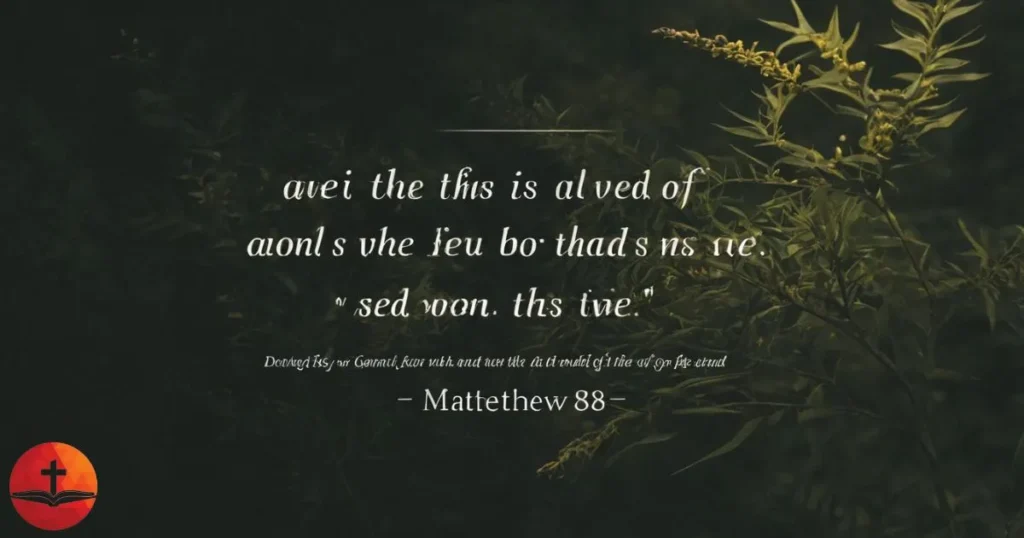
“He replied, ‘You of little faith, why are you so afraid?’ Then he got up and rebuked the winds and the waves, and it was completely calm.”
Jesus’ ability to calm the storm illustrates His power over nature and His authority as the Son of God.
Job 37:6

“He says to the snow, ‘Fall on the earth,’ and to the rain shower, ‘Be a mighty downpour.’”
God commands the weather according to His will, demonstrating His sovereignty over natural elements.
Mark 4:39
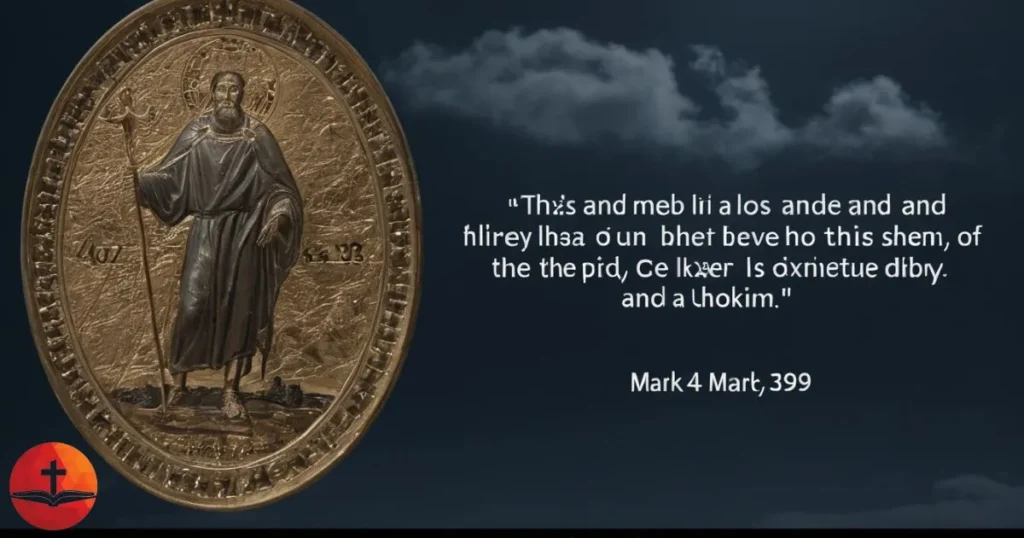
“He got up, rebuked the wind and said to the waves, ‘Quiet! Be still!’ Then the wind died down and it was completely calm.”
Similar to the account in Matthew, this verse emphasizes Jesus’ power to control the weather and bring peace in chaotic situations.
Job 26:8

“He wraps up the waters in his clouds, yet the clouds do not burst under their weight.”
This verse speaks to God’s control over the clouds and water, illustrating His wisdom in managing natural processes.
Ecclesiastes 1:6

“The wind blows to the south and turns to the north; round and round it goes, ever returning on its course.”
The cyclical nature of the wind reflects the order and consistency in creation, acknowledging God’s design.
Psalm 65:10-11
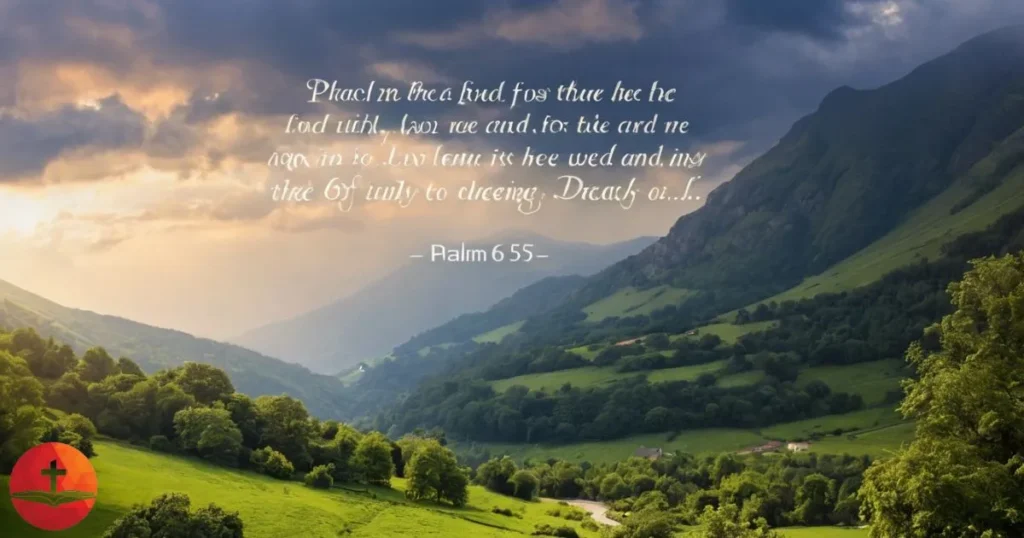
“You drench its furrows and level its ridges; you soften it with showers and bless its crops. You crown the year with your bounty, and your carts overflow with abundance.”
This passage praises God’s provision of rain and its impact on the land, highlighting His role in ensuring a bountiful harvest.
Isaiah 55:10-11
“As the rain and the snow come down from heaven, and do not return to it without watering the earth and making it bud and flourish, so is my word that goes out from my mouth: It will not return to me empty, but will accomplish what I desire and achieve the purpose for which I sent it.”
God’s word is compared to rain and snow, emphasizing its power to fulfill its purpose and bring about His plans.
Psalm 104:4
“He makes winds his messengers, flames of fire his servants.”
The winds and fire are depicted as instruments of God’s will, illustrating His control over natural forces.

Lamentations 3:37-38

“Who can speak and have it happen if the Lord has not decreed it? Is it not from the mouth of the Most High that both calamities and good things come?”
This verse acknowledges that all events, including weather-related calamities, are under God’s control and decree.
Proverbs 25:14
“Like clouds and wind without rain is one who boasts of gifts never given.”

This verse uses the image of clouds and wind without rain to describe empty promises, emphasizing the importance of fulfilling one’s commitments.
Jeremiah 10:13
“When he thunders, the waters in the heavens roar. He makes clouds rise from the ends of the earth. He sends lightning with the rain and brings out the wind from his storehouses.”
God’s power over the weather is highlighted, showing His ability to create and control thunder, rain, and wind.

Matthew 16:2-3
“He replied, ‘When evening comes, you say, “It will be fair weather, for the sky is red,” and in the morning, “Today it will be stormy, for the sky is red and overcast.” You know how to interpret the appearance of the sky, but you cannot interpret the signs of the times.’”
This passage contrasts the ability to predict weather with the inability to discern spiritual signs, stressing the need for spiritual understanding.
James 5:17-18
“Elijah was a human being, even as we are. He prayed earnestly that it would not rain, and it did not rain on the land for three and a half years. Again he prayed, and the heavens gave rain, and the earth produced its crops.”
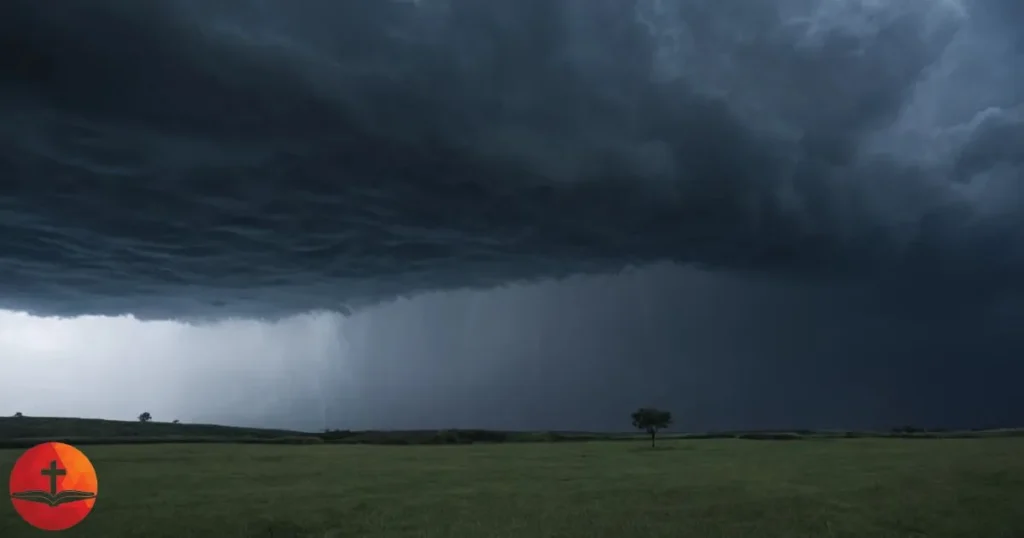
Elijah’s prayers influenced the weather, demonstrating the power of faith and prayer in affecting natural events.
Haggai 1:10
“Therefore, because of you the heavens have withheld their dew and the earth its crops.”
This verse links obedience to God with the provision of rain and crops, showing the connection between spiritual and physical blessings.
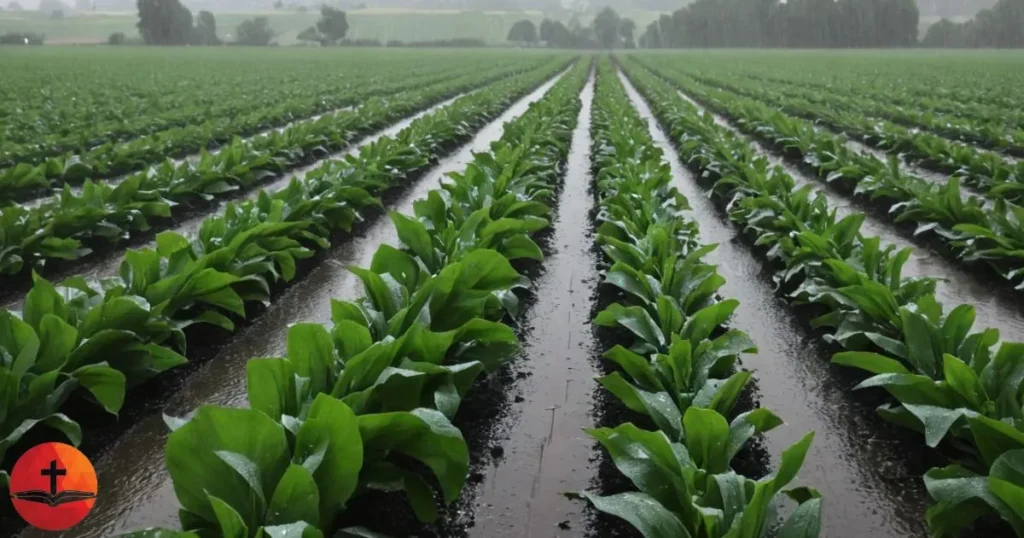
Genesis 2:5
“Now no shrub had yet appeared on the earth and no plant had yet sprung up, for the Lord God had not sent rain on the earth and there was no one to work the ground.”

The absence of rain is noted as a part of God’s creation process, reflecting His timing and purpose in providing for the earth.
Psalm 18:12
“Out of the brightness of his presence clouds advanced, with hailstones and bolts of lightning.”
This imagery depicts God’s presence and power through dramatic weather events, highlighting His majesty.
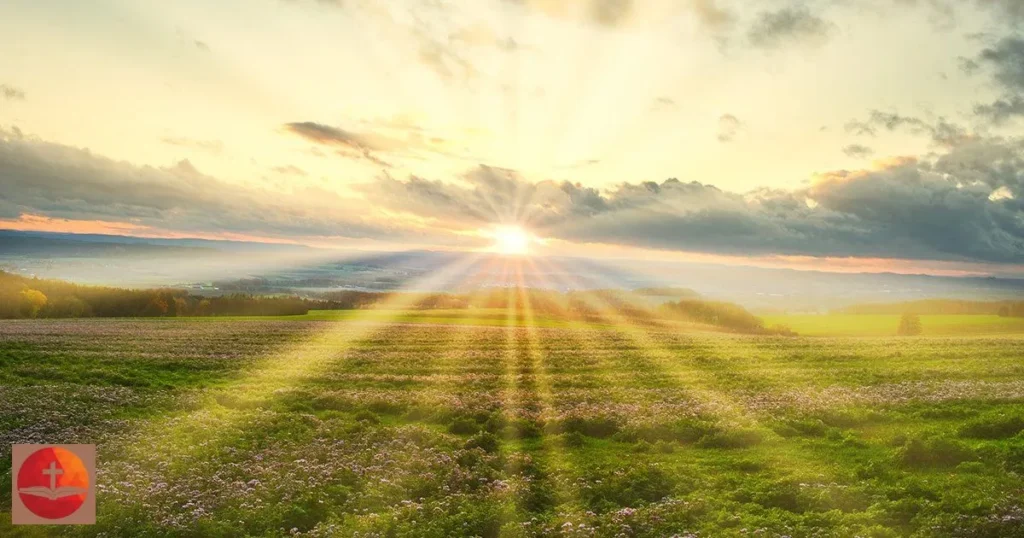
Luke 12:54-55
“He said to the crowd: ‘When you see a cloud rising in the west, immediately you say, “It’s going to rain,” and it does. And when the south wind blows, you say, “It’s going to be hot,” and it is.’”
Jesus uses weather observations to illustrate people’s ability to interpret natural signs, drawing a parallel to understanding spiritual truths.
Deuteronomy 28:12
“The Lord will open the heavens, the storehouse of his bounty, to send rain on your land in season and to bless all the work of your hands. You will lend to many nations but will borrow from none.”
God’s blessings include timely rain and prosperity, linking obedience to His commands with material blessings.

Ezekiel 34:26
“I will make them and the places surrounding my hill a blessing. I will send down showers in season; there will be showers of blessing.”
God promises showers of blessing for His people, showing His commitment to providing for their needs.
Amos 4:7
“I also withheld rain from you when the harvest was still three months away. I sent rain on one town but withheld it from another. One field had rain; another had none and dried up.”
This verse illustrates God’s control over rain and His ability to distribute it according to His will.
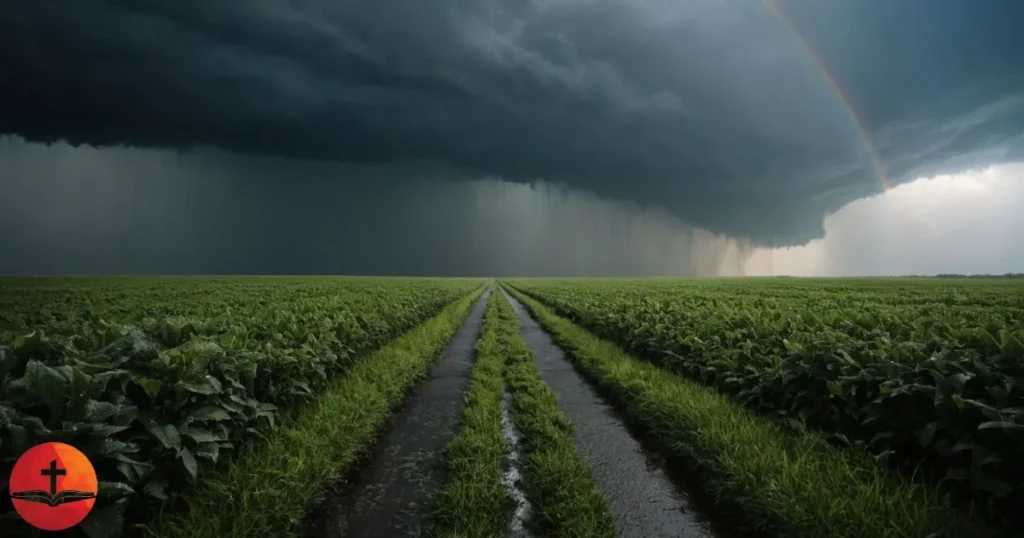
Zechariah 10:1
“Ask the Lord for rain in the springtime; it is the Lord who sends the thunderstorms. He gives showers of rain to all people, and plants of the field to everyone.”
Rain is seen as a gift from God, with prayer being an appropriate response to His provision.
Jeremiah 14:22
“Do any of the worthless idols of the nations bring rain? Do the skies themselves send down showers? No, it is you, Lord our God. Therefore our hope is in you, for you are the one who does all this.”
God is acknowledged as the source of rain and the one who controls the weather, contrasting His power with the ineffectiveness of idols.

Exodus 9:23
“When Moses stretched out his staff toward the sky, the Lord sent thunder and hail, and lightning flashed down to the ground. So the Lord rained hail on the land of Egypt.”
The plagues in Egypt demonstrate God’s power over weather and His ability to use natural elements for His purposes.
Job 37:11
“He loads the clouds with moisture; he scatters his lightning through them.”
This verse describes God’s management of moisture and lightning, showing His control over weather elements.
Isaiah 28:2
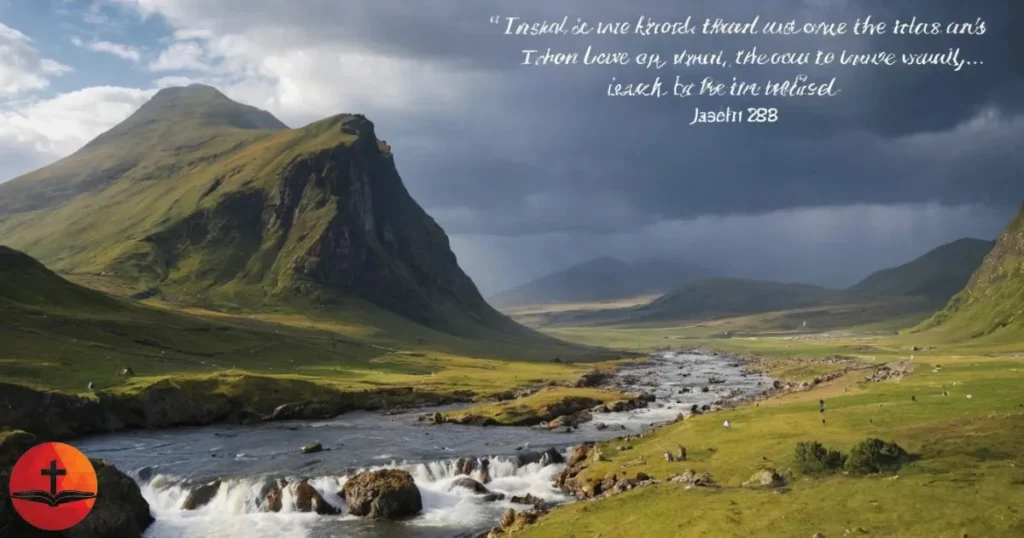
“See, the Lord has one who is powerful and strong. Like a hailstorm and a destructive wind, like a driving rain and a flooding downpour, he will throw it forcefully to the ground.”
God’s power is compared to hailstorms and floods, illustrating His might and the impact of His judgments.
Matthew 5:45
“That you may be children of your Father in heaven. He causes his sun to rise on the evil and the good, and sends rain on the righteous and the unrighteous.”
God’s provision of sun and rain is extended to all, reflecting His impartial goodness and generosity.
Psalm 29:10
“The Lord sits enthroned over the flood; the Lord is enthroned as King forever.”
God’s sovereignty is affirmed even over the most overwhelming natural events like floods, showing His eternal reign.
Job 36:27-28
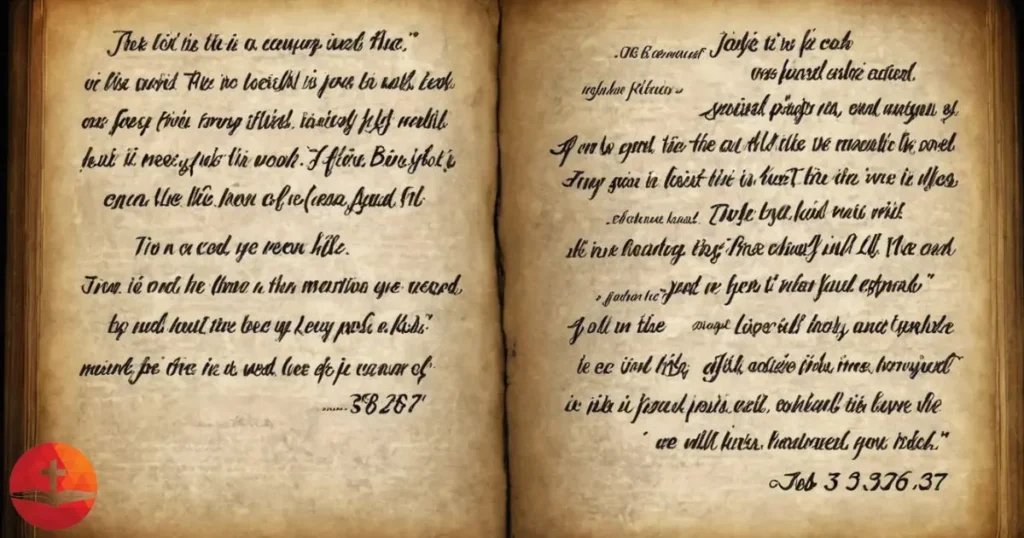
“He draws up the drops of water, which distill as rain to the streams; the clouds pour down their moisture and abundant showers fall on humanity..”
This passage describes God’s control over the water cycle, from evaporation to rainfall.
Isaiah 44:3
“For I will pour water on the thirsty land, and streams on the dry ground; I will pour out my Spirit on your offspring, and my blessing on your descendants.”
God promises to provide both physical and spiritual sustenance, likening His blessings to rain.
Genesis 8:22
“As long as the earth endures, seedtime and harvest, cold and heat, summer and winter, day and night will never cease.”
God’s promise ensures the continuity of natural cycles, including weather patterns, as part of His covenant with creation.
Bible Verses on Devotion: Spending Quality Time with God
Exodus 14:21
“Then Moses stretched out his hand over the sea, and all that night the Lord drove the sea back with a strong east wind and turned it into dry land.”
The parting of the Red Sea demonstrates God’s power over natural elements to accomplish His purposes.
1 Kings 18:44
“The seventh time the servant reported, ‘A cloud as small as a man’s hand is rising from the sea.’ So Elijah said, ‘Go and tell Ahab, “Hitch up your chariot and go down before the rain stops you.”’”
Elijah’s prayers bring a small sign of rain, which grows into a downpour, illustrating the power of faithful prayer.
Psalm 135:7
“He makes clouds rise from the ends of the earth; he sends lightning with the rain and brings out the wind from his storehouses.”
God’s management of weather elements shows His control and power over the natural world.
2 Samuel 22:11
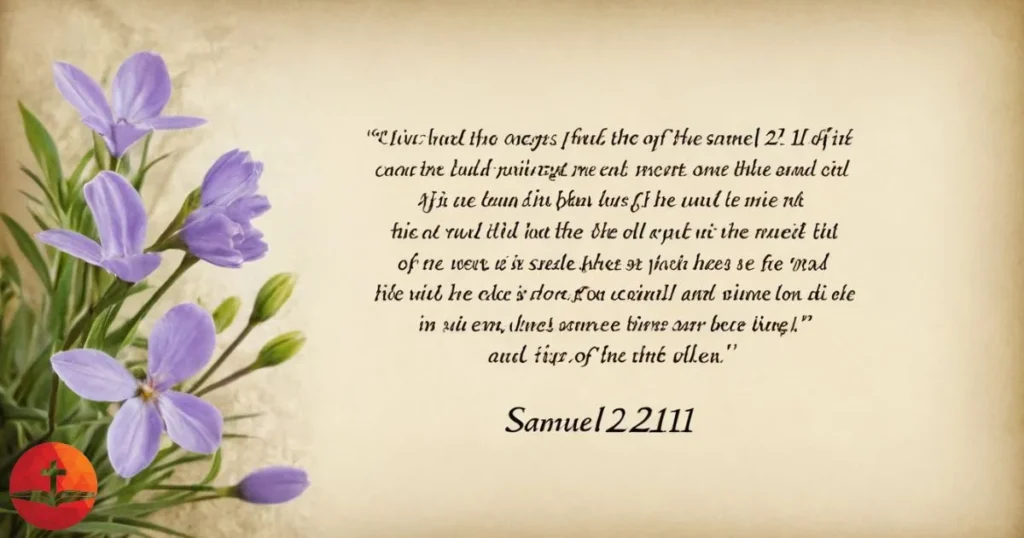
“He mounted the cherubim and flew; he soared on the wings of the wind.”
This imagery describes God’s sovereign power and His ability to move through natural elements.
Psalm 68:8
“The earth shook, the heavens poured down rain, before the God of Sinai, before God, the God of Israel.”
The earthquake and rain are signs of God’s presence and power, demonstrating His majesty.
Revelation 11:19
“Then God’s temple in heaven was opened, and within his temple was seen the ark of his covenant. And there came flashes of lightning, rumblings, peals of thunder, an earthquake and a severe hailstorm.”
The imagery of lightning and hail reflects God’s glory and judgment in the heavenly realm.
Luke 8:23-25
“23 But as they sailed he fell asleep: and there came down a storm of wind on the lake; and they were filled with water, and were in jeopardy.24 And they came to him, and awoke him, saying, Master, master, we perish. Then he arose, and rebuked the wind and the raging of the water: and they ceased, and there was a calm.25 And he said unto them, Where is your faith? And they being afraid wondered, saying one to another, What manner of man is this! for he commandeth even the winds and water, and they obey him.”

Mark 4:39-41
“39 And he arose, and rebuked the wind, and said unto the sea, Peace, be still. And the wind ceased, and there was a great calm.40 And he said unto them, Why are ye so fearful? how is it that ye have no faith?41 And they feared exceedingly, and said one to another, What manner of man is this, that even the wind and the sea obey him?”

What does the Bible say about weather?
The Bible contains numerous references to weather, often illustrating God’s power, control, and purpose in nature. Here’s a look at some themes and verses that show what the Bible says about weather:
1. God’s Sovereignty over Weather
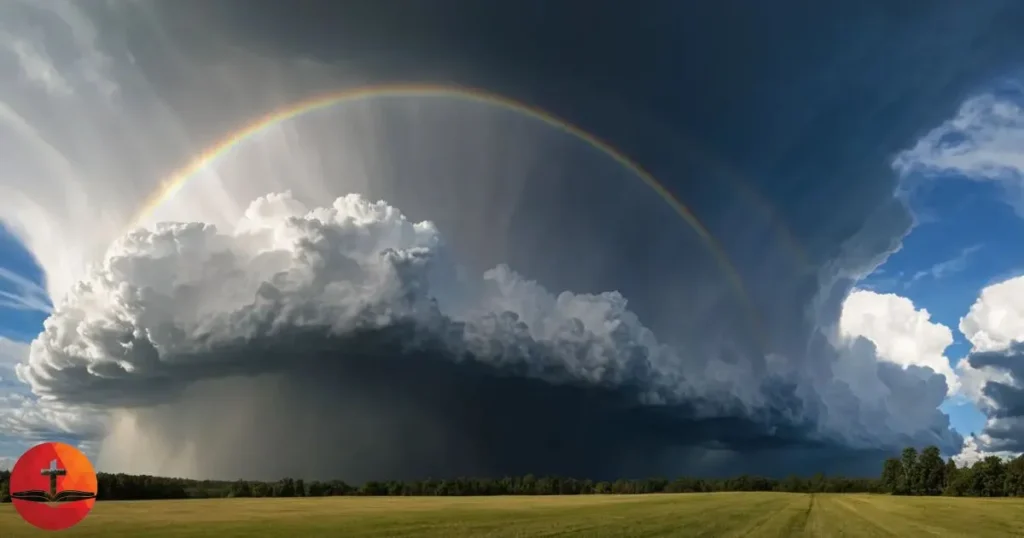
The Bible presents God as having full control over the elements, from storms to sunshine, which demonstrate His sovereignty over creation. In Job 37:6-13, for instance, God commands the snow, rain, and clouds for His purposes, whether to show mercy or discipline. Similarly, in Psalm 147:8, it says, “He covers the sky with clouds; he supplies the earth with rain and makes grass grow on the hills.” These verses suggest that God’s authority includes the natural world and its weather patterns.
2. Weather as a Tool for Teaching and Judgment
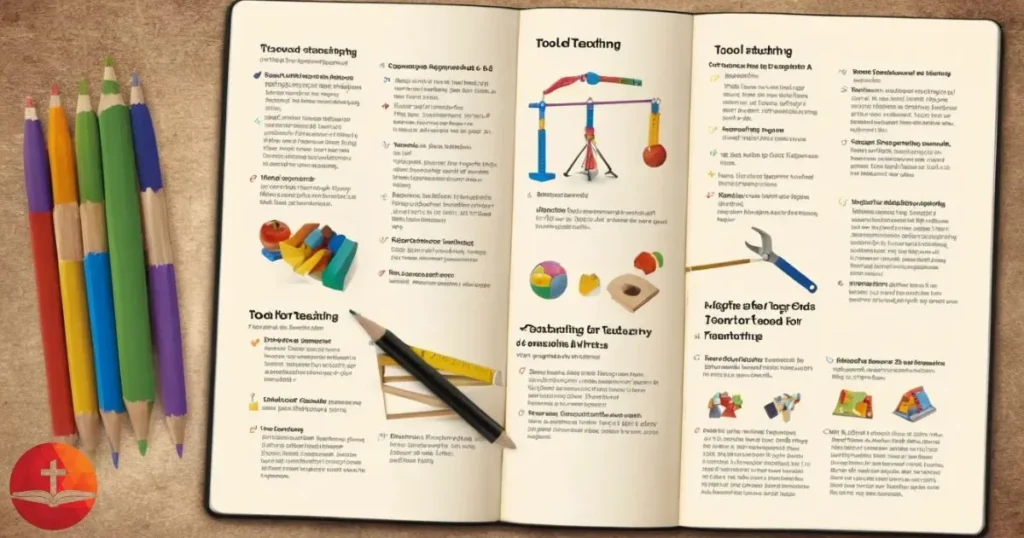
In the Bible, weather can serve as a means of guidance, warning, or judgment. For instance, in Genesis 7, the story of Noah’s Ark shows God using a flood as a form of judgment. Meanwhile, in Exodus 9:22-26, hailstorms were sent as one of the plagues upon Egypt, demonstrating God’s judgment while also protecting His people in the land of Goshen. These instances reveal that weather events sometimes carry a deeper meaning, pointing to God’s justice or mercy.
3. Weather Reflecting God’s Kindness and Provision

Positive weather conditions, like rain for crops, are often shown as blessings and signs of God’s care. In Matthew 5:45, Jesus says, “He causes his sun to rise on the evil and the good and sends rain on the righteous and the unrighteous.” This reflects God’s impartial provision and goodness. Similarly, Deuteronomy 28:12 speaks of blessings associated with weather: “The Lord will open the heavens, the storehouse of his bounty, to send rain on your land in season and to bless all the work of your hands.”
4. Weather in Prophecy and Symbolism
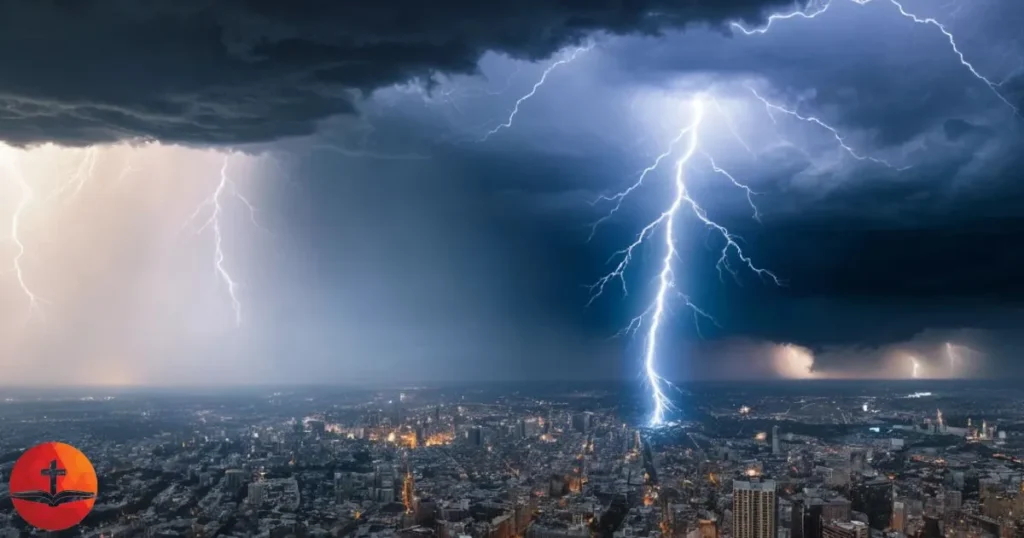
Many prophecies in the Bible use weather as symbols to convey larger messages. In Joel 2:30-31, we see apocalyptic imagery with references to blood, fire, and billows of smoke, along with the sun turning dark and the moon red—elements that symbolize God’s intervention in the world. Likewise, in Matthew 16:2-3, Jesus discusses “interpreting the signs of the times” by looking at the sky, hinting at an understanding of divine timing and discernment through natural events.
5. Weather as a Call to Awe and Worship
The majesty of nature, including storms and tranquil skies, is often depicted as a way to inspire awe and reverence for God. Psalm 19:1 proclaims, “The heavens declare the glory of God; the skies proclaim the work of his hands.” Weather events serve as reminders of God’s greatness and creativity, encouraging people to worship Him.
Key Verses on Weather
- Psalm 135:7 – “He brings clouds from the ends of the earth; he sends lightning with the rain and brings out the wind from his storehouses.”
- Nahum 1:3 – “The Lord is slow to anger but great in power; the Lord will not leave the guilty unpunished. His way is in the whirlwind and the storm, and clouds are the dust of his feet.”
- Mark 4:39 – Jesus calms the storm, demonstrating His authority over nature: “He got up, rebuked the wind and said to the waves, ‘Quiet! Be still!’ Then the wind died down and it was completely calm.”
What Does the Bible Say About Perfect Weather Conditions?

The Bible often describes perfect weather conditions as blessings from God, symbolizing His favor, peace, and provision. In the Old Testament, favorable weather, like rain for crops or clear skies for harvest, was seen as a sign of God’s blessings. For example, in Deuteronomy 28:12, it says, “The Lord will open the heavens, the storehouse of His bounty, to send rain on your land in season and to bless all the work of your hands.”
In contrast, extreme weather, like drought or storms, was sometimes a symbol of divine judgment or a call for repentance. Perfect weather conditions in Scripture serve as reminders of God’s power, His sustenance for creation, and the harmony He desires between people and the natural world.
What is the Bible verse for fair weather?
The Bible references fair weather as a gift from God, often symbolizing peace, blessings, and clarity. In Job 37:22, it states, “Fair weather comes out of the north: with God is terrible majesty.”
This verse highlights God’s sovereignty over the elements, illustrating that clear, calm weather reflects His power and majesty. Fair weather serves as a reminder of God’s presence, encouraging trust in His timing and the beauty He brings after storms in life, both literal and figurative.
Bible verses about weather in the last days
The Bible mentions weather and natural phenomena in the context of the last days, often pointing to them as signs of the end times or as part of the judgment and restoration that will occur. Here are some key Bible verses related to weather in the last days:
- Matthew 24:29
“Immediately after the distress of those days
‘the sun will be darkened,
and the moon will not give its light;
the stars will fall from the sky,
and the heavenly bodies will be shaken.’”
This verse speaks about cosmic disturbances, including the darkening of the sun and moon, signaling the end of the age. - Luke 21:25-26
“There will be signs in the sun, moon and stars. On the earth, nations will be in anguish and perplexity at the roaring and tossing of the sea. People will faint from terror, apprehensive of what is coming on the world, for the heavenly bodies will be shaken.”
This passage describes a chaotic, tumultuous time in the last days, with weather phenomena such as roaring seas causing fear. - Revelation 6:12-14
“I watched as he opened the sixth seal. There was a great earthquake. The sun turned black like sackcloth made of goat hair, the whole moon turned blood red, and the stars in the sky fell to the earth, as figs drop from a fig tree when shaken by a strong wind. The heavens receded like a scroll being rolled up, and every mountain and island was removed from its place.”
This passage describes dramatic cosmic and weather-related events associated with the end times. - Isaiah 24:19-20
“The earth is broken up, the earth is split asunder, the earth is violently shaken. The earth reels like a drunkard, it sways like a hut in the wind; so heavy upon it is the guilt of its rebellion that it falls—never to rise again.”
While not directly about weather, this verse refers to catastrophic changes in the earth, including shaking and upheaval, which can be connected to end-time events. - Joel 2:30-31
“I will show wonders in the heavens and on the earth, blood and fire and billows of smoke. The sun will be turned to darkness and the moon to blood before the coming of the great and dreadful day of the Lord.”
This passage describes weather and celestial events preceding the final judgment, showing the dramatic effects on the natural world. - Revelation 16:8-9
“The fourth angel poured out his bowl on the sun, and the sun was allowed to scorch people with fire. They were seared by the intense heat and they cursed the name of God, who had control over these plagues, but they refused to repent and glorify him.”
This verse speaks of extreme heat as part of God’s judgment during the end times.
These verses point to significant weather and cosmic changes, often seen as signs or direct actions of God during the last days. They reflect the severity of the events that will unfold in the eschatological future.
ANSWER TO KEY QUESTION
Q1: How does the Bible describe God’s control over the weather?
A1: The Bible depicts God as having complete control over the weather, using it to fulfill His purposes and demonstrate His sovereignty.
Q2: What significance does rain have in the Bible?
A2: Rain symbolizes God’s provision and blessing, as well as His ability to bring life and growth to the land.
Q3: How do weather events in the Bible reflect God’s power?
A3: Weather events like storms, floods, and droughts are used to illustrate God’s power and authority over creation.
Q4: What do the Bible verses about weather teach us about God’s nature?
A4: These verses reveal God’s sovereignty, provision, and faithfulness in managing and utilizing weather for His purposes.
Q5: How should we respond to natural disasters based on biblical teaching?
A5: We should trust in God’s sovereignty, seek His guidance, and offer support and comfort to those affected by disasters.
Q6: Are there any lessons from Bible verses about weather for our daily lives?
A6: Yes, these verses remind us of God’s control over all aspects of life and encourage us to rely on Him in all circumstances.
Conclusion
Weather events throughout the Bible serve as powerful reminders of God’s sovereignty and care for creation. From the calming of storms to the provision of rain, these scriptures reveal God’s intimate involvement in the natural world and His ability to influence it according to His will.
By reflecting on these verses, we can gain a deeper appreciation for the ways in which God’s power and provision are evident in our lives. As we navigate the various seasons of our own lives, let us be reminded of God’s control over all aspects of creation and trust in His ability to guide and sustain us.

Hi! I’m Zadie Smith, the writer behind BiblePulze.com. I’m passionate about exploring and sharing insights on Bible topics in a way that’s easy to understand. Whether you’re looking to dive deep into scripture or just want to learn more about its teachings, I aim to make the Bible accessible and engaging for everyone.

